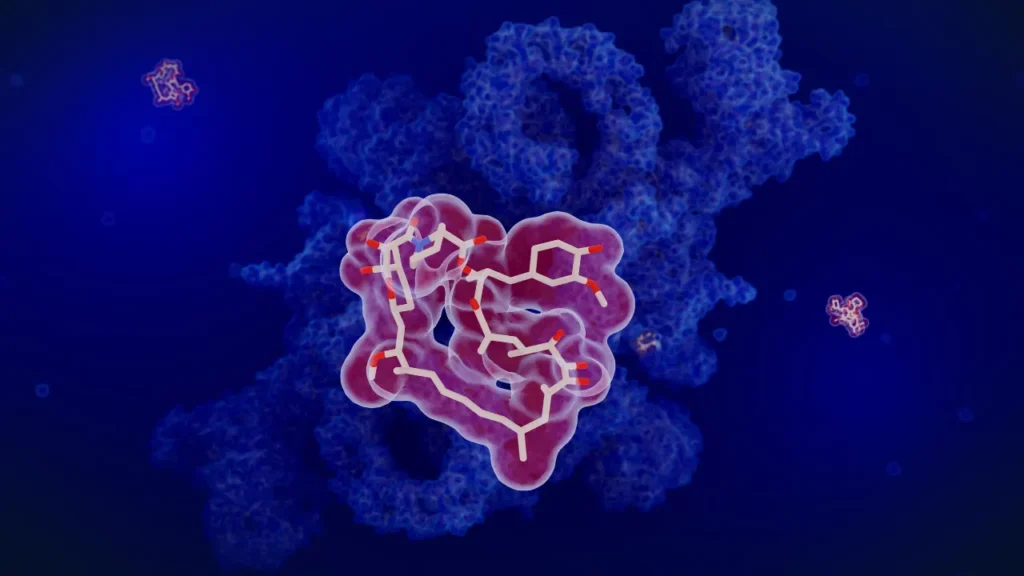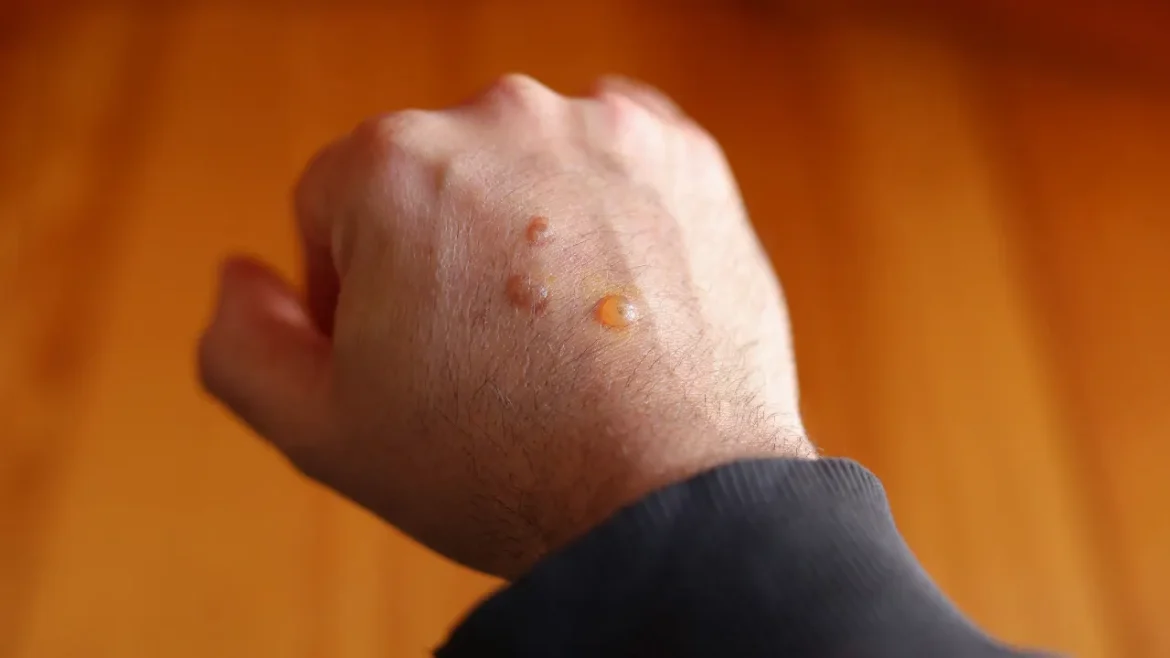Description
A set of autoimmune diseases known as pemphigus are characterized by the emergence of erosions and intraepithelial blisters. There are various different types of pemphigus, like pemphigus foliaceus (PF), paraneoplastic pemphigus (PNP), and pemphigus vulgaris (PV). Autoantibodies against desmogleins, proteins important in preserving cell-to-cell contact in the epidermis, are a defining feature of pemphigus.
You May Also Like:
FINDING THE BEST LION’S MANE MUSHROOM SUPPLEMENT: 5 TOP BRANDS REVIEWED
FINDING THE BEST MEDICINAL MUSHROOMS: 5 GREAT THINGS TO LOOK FOR IN A TOP-QUALITY MUSHROOM PRODUCT
Pemphigus: Description, Causes, And Treatment Protocol is an original (HealthXWire) article.
Possible Causes
The autoimmune disease pemphigus is marked by the development of autoantibodies targeting proteins that regulate cell adhesion in the epidermis, causing blister development and tissue destruction. Although the exact reason for pemphigus cannot be entirely understood, many things are thought to have a part in its emergence. Following are some potential causes and contributing elements for pemphigus: –
- Immunological Dysfunction: As an autoimmune condition, pemphigus is characterized by an immune response mistakenly attacking healthy bodily parts. Desmogleins, proteins in pemphigus that are in charge of preserving the strength of skin cell binding, are the target of autoantibodies. Although the precise cause of this autoimmune reaction is not completely clarified, a breakdown in immunological tolerance is believed to be a contributing factor.
- Genetic Predisposition: Pemphigus may have a hereditary component, according to data. The risk of getting the illness may be increased by specific genetic variants. Pemphigus is not primarily inherited, and it is possible that other variables also play a role.
- Environmental Triggers: If you have a hereditary predisposition to the disease, environmental factors may contribute to pemphigus. Pemphigus has occasionally been linked to particular environmental triggers, like bacterial or viral infections or drugs like ACE inhibitors or specific antibiotics. These catalysts might cause an immunological reaction that results in the formation of autoantibodies.
- Hormonal Factors: Pemphigus may be caused by hormonal changes and abnormalities, according to certain theories. The hormonal changes that take place during pregnancy, puberty, or menopause have been observed to have an impact on pemphigus. The precise mechanisms behind the association between pemphigus and hormones, nevertheless, are still poorly understood.
- Environmental and Genetic Interactions: Pemphigus most likely includes a combination of environmental stressors and genetic predisposition. Individuals may be genetically predisposed to pemphigus, and in those who are vulnerable, environmental stimuli may start or intensify the inflammatory response.

Exacerbating and Mitigating Factors of Pemphigus
Pemphigus aggravating and mitigating factors may have a big impact on the severity and progression of the condition. Pemphigus sufferers can better control their condition by recognizing these contributing variables and adopting the necessary lifestyle changes. These common pemphigus aggravating and reducing factors are listed: –
The exacerbating factors include: –
- Physical Trauma: Pemphigus lesions might be triggered or made worse by physical trauma, like pressure, friction, or skin damage. It is crucial to refrain from subjecting the affected regions to severe scratching, rubbing, or other mechanical damage.
- Emotional Stress: The aggravation of several autoimmune illnesses, including pemphigus, has been connected to emotional stress. Techniques for managing stress, including mindfulness, breathing exercises, counseling, and treatment, may help lower stress levels and possibly ease symptoms.
- Infections: Infections, especially viral ones such as respiratory infections or herpes simplex, may trigger flare-ups of pemphigus. Keeping proper hygiene standards and taking the appropriate steps to prevent infections, like routinely washing hands and avoiding direct contact with those who are ill, may be beneficial.
- Certain Medications: The deterioration of pemphigus or the emergence of drug-induced pemphigus have both been linked to certain drugs. These medicines include several nonsteroidal anti-inflammatory drugs or NSAIDs, certain blood pressure medications, and some antibiotics such as tetracycline and penicillamine. Prior to beginning any new medications, patients with pemphigus should let their doctor know that they suffer from the illness.
The mitigating factors include: –
- Proper Skincare Routine: Developing a mild skincare regimen is essential for controlling pemphigus. One must use gentle, scent-free moisturizers and cleansers that are appropriate for sensitive skin. You should refrain from using hot water, abrasive soaps, and forceful skin rubbing.
- Stress Management: Utilizing stress-reduction strategies like yoga, meditation, exercise, or indulging in hobbies might help lower stress levels. If you have pemphigus, controlling your stress levels may improve your standard of living and the progression of the disease.
- Healthy Lifestyle: A healthy lifestyle, which includes a balanced diet, frequent exercise, enough sleep, and abstaining from smoking and drinking too much alcohol, can promote general well-being and possibly help with managing diseases.
- Suitable Garments and Accessories: Wearing comfortable, breathable clothing that fits loosely helps reduce skin rubbing and irritation. It is advised to stay away from tight-fitting clothing and accessories that can push or rub against the affected regions.
- Environmental Factors: Since ultraviolet (UV) radiation may trigger pemphigus flare-ups, it’s crucial to protect one’s skin from overexposure to the sun and ultraviolet rays. During the hottest parts of the day, people should seek shade, apply broad-spectrum sunscreen, and dress protectively.


Standard Treatment Protocol for Pemphigus
Controlling disease activity, promoting wound healing, and reducing adverse effects are all goals of the typical pemphigus therapy program. The conventional treatment plan is outlined here: –
- Corticosteroids: The first-line treatment for pemphigus is systemic corticosteroids like prednisolone or prednisone. They function by decreasing inflammation and the immunological response. In order to manage disease activity, high dosages of corticosteroids are routinely started, then reduced to the lowest efficient maintenance dosage.
- Immunosuppressive Agents: To decrease the recommended dose of corticosteroids and lessen their negative effects, immunosuppressive drugs are frequently administered along with corticosteroids. Several frequently employed immunosuppressive medicines include: –
- Azathioprine: It assists in lowering immune system activity by preventing DNA synthesis within fast-dividing immune cells.
- Methotrexate: Targeting quickly dividing immune cells, obstructs DNA synthesis along with cell replication.
- Mycophenolate Mofetil: This drug aids in maintaining disease management by preventing DNA production, especially in immune cells.
- Rituximab: A monoclonal antibody called rituximab can be used when more traditional treatments are ineffective. It works to reduce the autoimmune reaction and targets particular immune cells responsible for pemphigus.
- Intravenous Immunoglobulin (IVIG): Treatment options for severe or resistant pemphigus include IVIG. High-dose immunoglobulins are infused, and by neutralizing autoantibodies, they offer passive immunomodulation.


Treatment Options for Pemphigus
Adjunct therapies can be used in place of the regular course of therapy to improve results and offer more assistance. Following are some additional possibilities for pemphigus treatment: –
- Prescription Medications: These include: –
- Topical corticosteroids: It is applied to treat the symptoms of localized pemphigus lesions and promote wound healing.
- Over-the-Counter Formulations: These include: –
- Topical antiseptics: It promotes healing and aids in the prevention of subsequent infections in open wounds.
- Nutritional Supplements: Although dietary supplements cannot take the place of conventional medical care for pemphigus, they can improve immune function, wound healing, and general health. Before taking any supplements, it is vital to speak with a doctor because everyone’s requirements and interactions with drugs are different. Following are some dietary supplements that may be helpful for people with pemphigus:
- Vitamin D: Immune system health and wound healing depends greatly on vitamin D. According to certain studies, pemphigus can be related to vitamin D insufficiency. Under medical guidance, vitamin D supplementation may be thought of as a way to maintain sufficient amounts and support general health.
- Omega-3 Fatty Acids: Fish oil supplements contain omega-3 fatty acids, that possess anti-inflammatory qualities. Omega-3 supplements may help lower inflammation and activity of diseases in autoimmune disorders, while there is little data specifically on pemphigus.
- Zinc: Numerous biological functions, including the immune system and skin health, require zinc. There is a possibility that people experiencing pemphigus have reduced zinc levels. Sufficient zinc consumption or supplementation could support the immune system and wound healing.
- Natural and Herbal Remedies: Supplemental therapy for pemphigus is sometimes thought of as using herbal and natural remedies. Following are several herbal and natural treatments that are recommended as potentially beneficial for people with pemphigus: –
- Aloe Vera: Aloe vera gel has become widely recognized for its calming and wound-healing qualities. It might ease discomfort and aid in the recovery of pemphigus lesions. One should utilize gel from aloe vera topically on the affected regions but use just pure gel without any additional allergens or irritants.
- Calendula: The anti-inflammatory and wound-healing abilities of calendula have been employed traditionally. Calendula ointment or cream can be applied topically to pemphigus lesions to relieve discomfort and promote healing.
- Green Tea: Polyphenols, which have anti-inflammatory and antioxidant characteristics, are prevalent in green tea. Although there is little information on its precise effects on pemphigus, consuming green tea or utilizing extracts of green tea topically might offer advantages.
- Turmeric: Curcumin, a component of turmeric, has anti-immunomodulatory and inflammatory properties. It might promote the equilibrium of the immune system and lessen inflammation. Turmeric might be used in the form of a supplement or as a cooking spice, but doctors should be consulted about the dose and any possible interactions.
However, it is crucial to stress that conventional medical care for pemphigus must not be replaced by alternative or herbal therapies. To ascertain the safety, suitable dose, and possible reactions of these therapies with medicines prescribed, medical specialists’ advice is essential.


Conclusion
Pemphigus may sound daunting on paper, but with dedication to understanding it, proactive lifestyle changes, and a personalized medical plan to combat it, you can conquer its challenges.
Just remember to prioritize gentle skincare and minimize triggers. You’re not alone – support groups and complementary therapies can elevate your efforts to control the symptoms and defeat pemphigus. Good luck!
Additional resources for further reference
- PEMPHIGUS: DIAGNOSIS AND TREATMENT. Retrieved from: https://www.aad.org/public/diseases/a-z/pemphigus-symptoms
- Overview of Pemphigus. Retrieved from: https://www.niams.nih.gov/health-topics/pemphigus#:~:text=Pemphigus%20is%20a%20disease%20that,epidermis)%20and%20the%20mucous%20membranes
- Pemphigus. Retrieved from: https://my.clevelandclinic.org/health/diseases/21130-pemphigus
Important Note: The information contained in this article is for general informational purposes only, and should not be construed as health or medical advice, nor is it intended to diagnose, prevent, treat, or cure any disease or health condition. Before embarking on any diet, fitness regimen, or program of nutritional supplementation, it is advisable to consult your healthcare professional in order to determine its safety and probable efficacy in terms of your individual state of health.
Regarding Nutritional Supplements Or Other Non-Prescription Health Products: If any nutritional supplements or other non-prescription health products are mentioned in the foregoing article, any claims or statements made about them have not been evaluated by the U.S. Food and Drug Administration, and such nutritional supplements or other health products are not intended to diagnose, treat, cure, or prevent any disease.
Table of Contents


